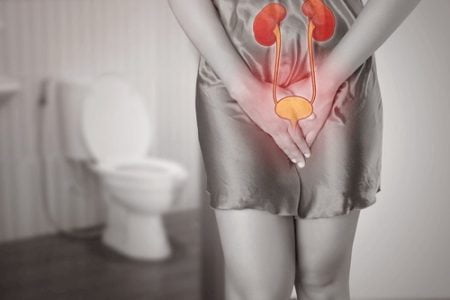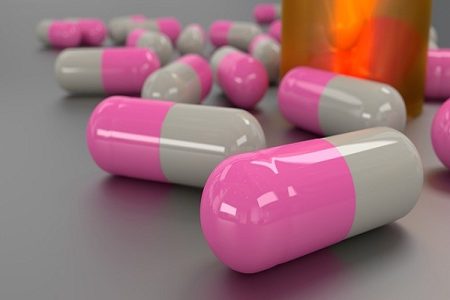Blockage of Urine in Children
- Updated on: Jul 10, 2024
- 3 min Read
- Published on Feb 8, 2019


Urine blockage in children is a serious condition which can lead to severe kidney and other complications. This condition can be detected both, before and after the birth of the child. In some cases, this condition can be life threatening for the child. This article discusses about treating blockage of urine in children before and after the birth.
Urine blockage in children
The function of kidneys in the urinary tract is to remove waste and excess water from the blood. Kidney anatomy is such that the urine is collected into a part of the kidney called the renal pelvis and ureters, attached to the kidney, carry the urine to the bladder (where it is stored before the release). The urethra draws out the urine of the body.
When a baby develops in the mother’s womb, his/her kidneys begin to produce urine at about 10 to 12 weeks after conception. This waste or extra water is removed from the baby’s body through the umbilical cord. The urine excreted by the unborn baby is released into the amniotic sac, which becomes part of the amniotic fluid.
In some cases, blockage in the flow of urine in an unborn baby occurs due to a birth defect. This leads to swelling in the kidneys. After the birth, blockage can be detected when the symptoms of a urinary tract infection become prominent.
What leads to blockage of urine in children?
The main cause of blockage in the flow of urine is a condition called posterior urethral valves (PUV) (in males). During posterior urethral valve (PUV) disorder, urine obstruction occurs due to an extra tissue that projects into the urethra.
Some other common defects in the urinary tract that can cause urine blockage in babies are:
- Vesicoureteral reflux (VUR): Sometimes, the urine flows back into the kidneys because the opening valve through which the urine flows out does not function properly. The urine backs up or reflexes upwards to the kidney because the ureter does not completely develop to its required length in the womb and the valve formed by the ureter (pressing against the bladder wall) does not close completely. This leads to swelling of ureters and kidneys.
- Ureteropelvic junction (UPJ) obstruction: If the ureteropelvic junction is closed, the urine is blocked in the kidneys. This leads to kidney edema.
- Bladder outlet obstruction (BOO): This condition is common in both, boys and girls. It occurs due to a blockage in the urethra or at the opening of the bladder and leads to swelling or inflammation in the entire urinary tract.
Other causes of blockage of urine in newborns are ureterocele, spina bifida, certain genetic defects such as prune belly syndrome (PBS), esophageal atresia (EA), etc.
Diagnosing urine blockage in newborns
This condition may be diagnosed before or after the birth of a child:
- Before birth or prenatal screening: An ultrasound, amniocentesis (detection through amniotic fluid) and chorionic villus sampling (CVS) (detecting through a small piece of tissue from the placenta) are recommended methods.
- After birth: An ultrasound, voiding cystourethrogram (VCUG) and Radionuclide scan or nuclear scan are recommended diagnosing methods.
Treatment of urine blockage in newborns
Antenatal hydronephrosis is a serious urological problem found during prenatal ultrasound screening, usually in the first trimester of pregnancy. Such urological problems should be treated as earliest as possible as they might pose severe harm to the kidneys.
Treatment options for blockage in the kidneys include:
- Surgery: A shunt surgery is recommended if the blockage is life threatening to the unborn baby. A shunt is inserted into the baby’s bladder which leads to a release of urine into the amniotic sac. Similarly, in a newborn baby, a small tube or a stent is placed in the ureter or urethra to keep it open temporarily to restore the flow of urine.
- Antibiotics: Bacteria-fighting medications are recommended to prevent the development of urinary tract infections.
Researchers are working to find the actual cause of urinary birth defects and also to find an effective treatment to cure blockage of urine in children.
FAQs
What causes urinary blockages in children?
Urinary blockages in children can result from congenital abnormalities, infections, or structural issues. Identifying the underlying cause is crucial for effective treatment.
How are urinary blockages diagnosed in children?
Diagnosis involves medical history, physical examination, and imaging studies like ultrasound. Early detection is vital for preventing complications.
Can urinary blockages affect a child's development?
If untreated, urinary blockages can lead to kidney damage and impact a child's growth and development. Timely intervention is essential.
What treatment options are available for urinary blockages in children?
Treatment may involve medications, catheterization, or surgical interventions depending on the severity and cause of the blockage.
Are urinary blockages common in children, and can they recur?
While not extremely common, urinary blockages can occur in children. Recurrence is possible, emphasizing the need for ongoing monitoring and follow-up care.












